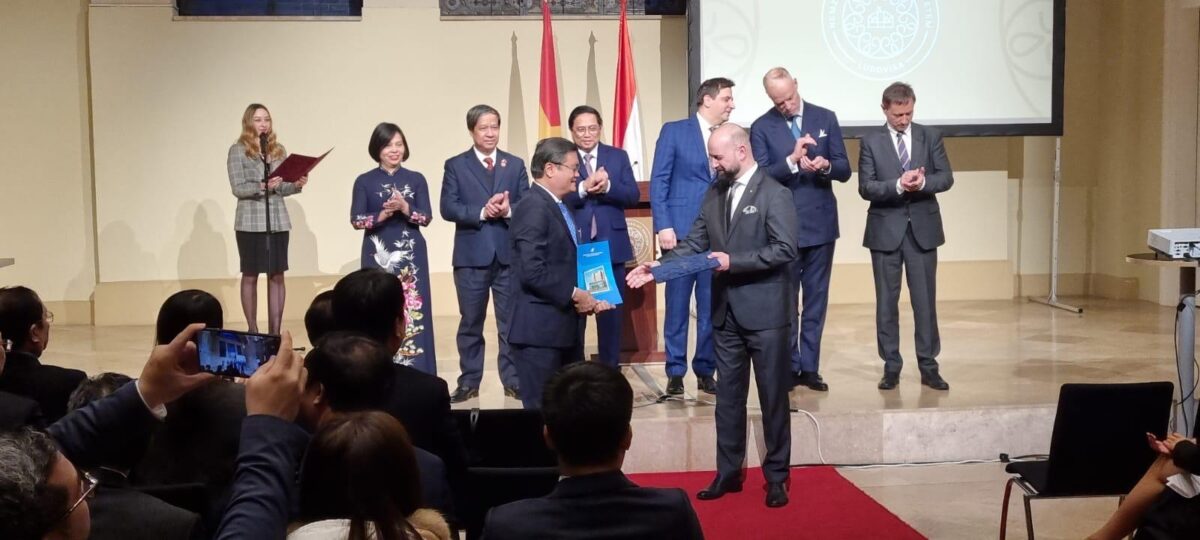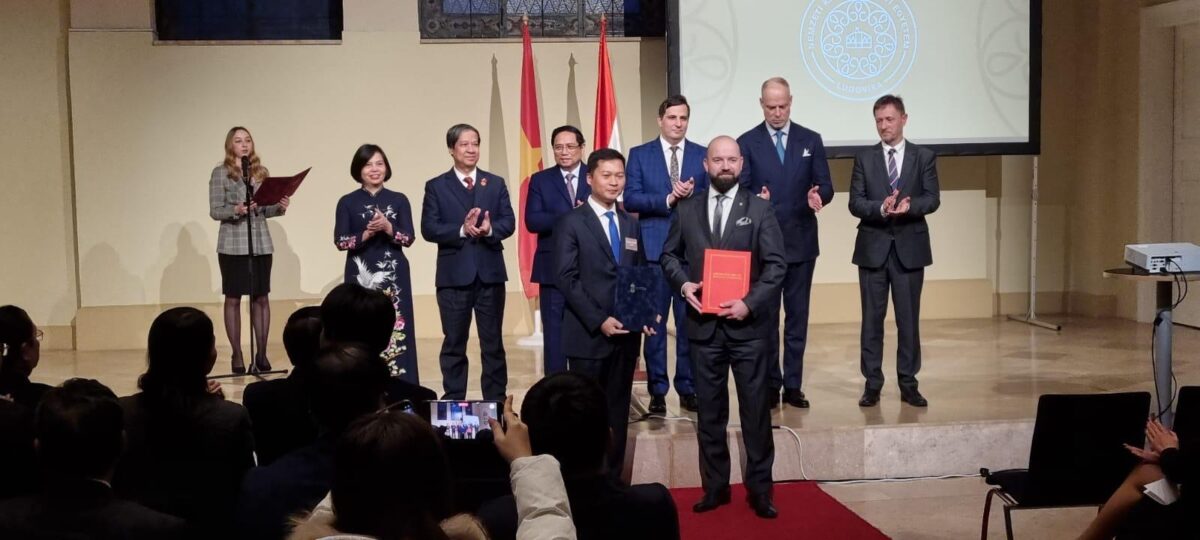A collaboration has been established between Obuda University and two of Vietnam's most prestigious universities.
Obuda University signed a cooperation agreement with two internationally renowned universities from Southeast Asia, marking the most dynamically developing country in the region. The agreement took place during a meeting at the National University of Public Service on January 19, resulting in a total of ten agreements between Hungarian and Vietnamese universities. Professor Dr. Levente Kovács, the rector of Obuda University, emphasized the significance of the agreements for the university, as they are part of the ongoing cooperation in Southeast Asia, covering mobility and joint research programs.
Following the speeches, ten cooperation agreements were signed between Vietnamese and Hungarian universities. These agreements are based on the existing collaboration, with more than 900 Vietnamese students currently studying at Hungarian higher education institutions. During the meeting, the leaders of the higher education institutions agreed to establish dual-degree programs, initiate joint scientific exchange programs, organize seminars and conferences, and publish joint publications within the framework of mutual scientific cooperation.
Before the meeting, Professor Dr. Levente Kovács, the rector, signed letters of intent with the leaders of Ho Chi Minh City University of Technology (HCMCOU) and Thai Nguyen University of Technology. The documents were ceremoniously handed over during the event.
Representatives from Obuda University at the event included Dr. habil. Ervin Rácz, Vice Rector for Education, Prof. Dr. Imre Felde, Vice Rector for Industrial and Business Relations, Dr. habil. Mónika Garai-Fodor, Dean of the Faculty of Economics, and Tibor Bial, International Director. (Tibor Bial accepted the letters of intent on behalf of Professor Dr. Levente Kovács from the leaders of Vietnamese universities.)
Professor Dr. Levente Kovács recalled that last year, agreements of cooperation were signed with the leadership of three Vietnamese higher education institutions: Hanoi University of Science and Technology, Mining and Geology University, and National Economics University. The newly established agreements represent a continuation of the Southeast Asian program. Contracts with Ho Chi Minh City University of Technology and Thai Nguyen University of Economics and Business Administration cover student and teacher exchange programs, joint research and development programs, collaborative research and development, and joint support for publications.
The rector noted that Ho Chi Minh City University (HCMCU) is a multi-disciplinary university with a wide range of programs. Its success is demonstrated by issuing approximately 40,000 undergraduate and over 1,500 master's degrees so far. Thai Nguyen University of Economics and Business Administration is rapidly developing, with outstanding training programs, scientific research, technology transfer, and international collaborations in the region. Regarding areas of education, the Eastern Karl Faculty of Economics represents the common point of connection with both universities.

The rector of Ho Chi Minh City University of Technology is Prof. Dr. Nguyen Minh, and Bial Tibor.

The Vice Rector of Thai Nguyen University of Economics and Business Administration is Dr. Dinh Hong Linh, Associate Professor, and Bial Tibor.
Vietnam is one of Asia and the world's fastest-growing economies, characterized by dynamic economic development, and it belongs to the newly industrialized countries. One of its key industrial hubs is Ho Chi Minh City. With approximately 101 million inhabitants, Vietnam ranks as the 16th most populous country globally. This Southeast Asian nation is a crucial strategic partner for Hungary, holding a prominent position in the enhancement of Hungary's eastern relations.



